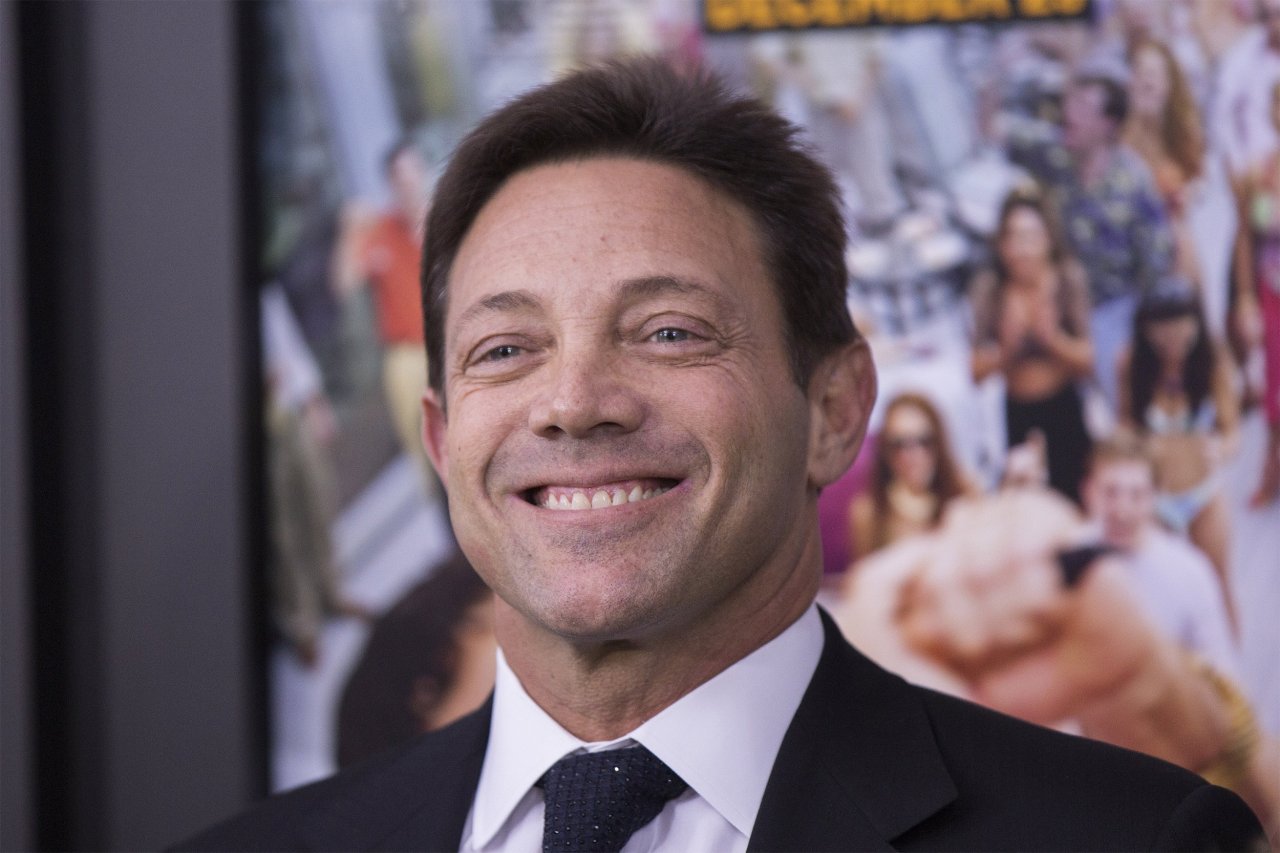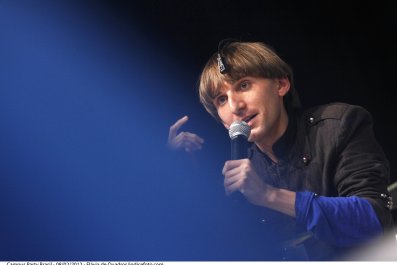Jordan Belfort has reinvented himself as a motivational speaker, and rogue financier Florian Homm has assured fellow Germans he is now a philanthropist focused on helping Liberian children. But both men made their fortunes subscribing to a well-understood business model; make as much money as you can, as quickly as you can, regardless of the cost to others, and then convert the proceeds into houses, cars, yachts and mistresses, all washed down with copious quantities of recreational drugs. Is this Wolf of Wall Street a thing of the past?
I begin my search for Canis lupus in a Turkish coffee shop off London's Piccadilly, a suitably exotic venue. I have arranged to meet Wesley Paul, formerly global head of investments at JP Morgan and now a businessman with a broad range of interests. Guyana-born Paul would make a fabulous character in a James Bond film. He's a powerful and well-connected financier with a charming smile and a love of weapons. His passion converts to an extensive private collection of historic European and Japanese arms and chairmanship of the Royal Armouries. However, it also involves investing in defence research, originally in the field of drone technology. This brings him into contact with a wide range of scientists, entrepreneurs, military types and other merchant-adventurers.
Paul is still driven, constantly curious, a networking obsessive who admits that he is addicted to a high-octane existence. Happily, he has long since blown past "the money-making stage" and is pre-occupied instead with "purpose". This purpose takes disparate forms: some economic, some cultural or philanthropic but they share an obsessive-compulsive need to probe inefficiencies, anomalies, opportunities for disintermediation. This, it turns out, is his defence against the Wolf. "Sure, I met Allen Stanford's top people once," he concedes, referring to the crooked financier who landed at Lord's cricket ground in a gold-plated helicopter, carrying a plexi-glass box containing $20m in cash.
"I asked them to show me how they made the returns they claimed. They couldn't. I asked to meet his researchers. They weren't available. Finally I suggested that their whole investment programme was effectively underwritten by Stanford's personal wealth, not by market returns. They didn't comment but refused eye contact thereafter."
Aged 64, Stanford is now facing 110 years in prison for Ponzi fraud. I ask Paul whether less experienced bankers are still vulnerable to such overtures. "A favourite book of mine is called Thinking Fast and Slow. Young City workers underrate the value of thinking slow. If all they think about is short-term revenue targets they will mismanage risk."
Gullibility is not the preserve of the young. Paul is supremely discreet but he outlines a scenario in which he was asked to do due diligence on a deal that was being proposed between some Asian investors and a group of high-powered establishment figures. In less than a morning of desk research he was able to establish that the deal is absurdly implausible and that the investors are charlatans. The Golden Rule, explains Paul, is to begin by focusing on whom you're dealing with rather than the product or idea they are putting forward. "At the end of the day it comes down to character."
"At JP Morgan we dealt with a thin layer of the financial community that was beyond reproach. But below these kinds of frameworks there is a Twilight Zone and the deeper you go, the greater the pollution. You have to do your homework and if you don't understand the person or the idea, just walk away. Reputations are one bad deal away from destruction."
Among Paul's many projects is an audacious piece of museum curating that will be labelled "The Great Empires". This will showcase the contribution of Islamic civilisation to world culture – his latest self-assigned "purpose". Before we part company I ask one last question: how could so many financially literate people be duped by someone such as Bernie Madoff? Paul thinks for a moment. "I'm going to introduce you to someone." It will be a small demonstration of the power of his network.
However, my next stop is the plush Knightsbridge office of Justin Bickle, a successful distressed debt investor. I'm surrounded by leather furniture, rich walnut and venerable paintings, but Bickle reminds me of his humble Plymouth council estate origins.
The most obvious link with the previous conversation is the emphasis he places on the integrity and calibre of prospective business partners. The conversation moves to philanthropy and Bickle laughs, as a working father of four, at the very idea of "being past the money-making stage". But this has not curtailed his support for his great passion, the English National Ballet. As chairman, he is about to embark on a weekend workshop where he will apply his considerable commercial skills to topics like touring, fundraising and partnerships. When I later delve into the world of "venture philanthropy", what becomes clear is that people like Paul and Bickle derive a kind of deep job satisfaction from their practical involvement in their chosen fields.
Exhausted by all this altruism I go to Scotts and order an ice-cold glass of champagne. I'm there to meet a woman who is something of an authority on the subject of high-end consumerism. Kelly Luchford is CEO of a PR company that promotes the world of luxury (Italian yachts, bijou hotels, apartments for the super-wealthy) and lunches with very high-net-worth women who take fundraising very seriously. She also represents Advanced Capital, a $1 billion fund-of-funds. I ask her whether the "Me Generation" has been replaced by a kinder "We Generation" that prioritises giving over spending.
The perfectly groomed Luchford is clearly more at home in a fine silk blouse than a hair shirt and reassures me that the seriously wealthy are still buying beautiful apartments in London's chicest districts and sailing off into the sunset on yachts. If the age of austerity is upon us, it's not spoiling things for society's upper echelons. But when we talk about Advanced Capital she's quick to point out that these financiers have a well-developed relationship with both Oxfam and the Aspen Institute, which promotes responsible leadership.
Kelly's perspective is that youthful beauty, luxury and charitable works make comfortable bedfellows. As a slightly bizarre illustration of this point, she mentions the kindness of one of her higher profile clients, Scarlett Johansson. Johansson has apparently sent 2,000 pairs of unwanted shoes to the needy via a charity called Soles4Souls. It's a slightly odd thought because it rather begs the question of whether one human being should own 4,000 shoes in the first place.
On the face of it, the Wolf has learnt humility and the fact that helping the wretched tends to deliver a more lasting high than a heap of cocaine snorted from the backside of a hooker. When I ask Bickle about office debauchery he replies: "Well you won't find any dwarf-tossing around here. The most exciting thing we do is serve cake on a Friday afternoon."
But a week later I am sitting in a manicured garden in a prestigious gated community. Paul has arranged for me to meet a former lieutenant of Allen Stanford, the Texan with poor manners. Before I meet this man my expectations are, I admit, coloured by Jordan Belfort's description of his Stratton Oakmont acolytes as witless pond life.
The reality is very different. Walking towards me is a calm, urbane executive aged about 50. Still active in the financial community, he is international, MBA-educated and with a CV that includes A-list American and European banks. Unsurprisingly, he begins by requesting that I don't publish his name.
How on earth, I ask after some pleasantries, did he get involved with Allen Stanford? He lights a cigar, takes a puff and answers a little wearily: "After a career with blue chips I was attracted to try something more entrepreneurial and was introduced to Stanford through a headhunter."
His first experience of Stanford was decidedly strange. "I was booked into a luxury hotel in Miami and told to stand by for a meeting at short notice. That short notice turned into three days of hanging around. It's not even as though I could relax by the pool because I was expecting to be summoned." Eventually the mustachioed crook showed up and enticed him to join a satellite office in Switzerland.
What followed was immediately unsatisfactory. "At first I thought the people I worked with were simply inexperienced as we discussed regulatory issues and potential sources of alpha in the Stanford products. I needed to know how the returns were being generated, but I just couldn't get any straight answers. If I'm honest, I was reluctant to believe that I'd been duped because I'd been excited about what looked like a good opportunity."
After only a couple of months he had to face up to the fact he had made a huge mistake and simply walked away. A year later Stanford was in prison (and getting beaten senseless by inmates). Evidently, thinking slow is hard when the heart beats fast.
We talk some more and it's obvious that my companion is intelligent, well-informed and predisposed to believe in the positive intentions of others. So I ask the question we really need answered; have we learned our lesson from people like Jordan Belfort, Bernie Madoff and Allen Stanford or are there still wolves prowling around the financial marketplace preying on the innocent?
After an exaggerated draw on his Cohiba my friend answers with a Twain-ism: "Reports of the Wolf's death are greatly exaggerated."


















